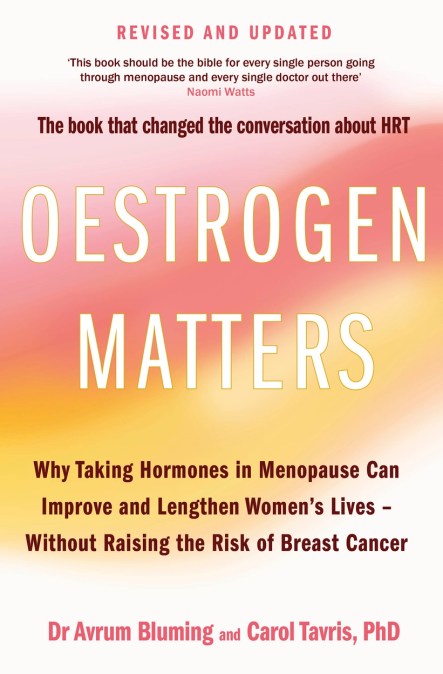‘I believe it is an ethical imperative for all clinicians who treat women in menopause or women with breast cancer to alert their patients to this book’ Michael Baum, MD, Professor Emeritus of Surgery and visiting professor of Medical Humanities, University College London
‘A thorough, careful and unbiased assessment . . . This extremely valuable message deserves to be widely disseminated’ Lord Turnberg, former President of the Royal College of Physicians
A compelling defence of hormone replacement therapy, exposing the faulty science behind its fall from prominence and empowering readers to make informed decisions about their health.
For years, hormone replacement therapy (HRT) was hailed as a miracle. Study after study showed that HRT, if initiated at the onset of menopause, could ease symptoms ranging from hot flushes to memory loss; reduce the risk of heart disease, Alzheimer’s, osteoporosis, and some cancers; and even extend a woman’s overall life expectancy. But when a large study by the Women’s Health Initiative announced results showing an uptick in breast cancer among women taking HRT, the winds shifted abruptly, and HRT, officially deemed a carcinogen, was abandoned.
Now, sixteen years after HRT was left for dead, Dr Bluming, a medical oncologist, and Dr Tavris, a social psychologist, track its strange history and present a compelling case for its resurrection. They investigate what led the public – and much of the medical establishment – to accept the Women’s Health Initiative’s often exaggerated claims, while also providing a fuller picture of the science that supports HRT.
A sobering and revelatory read, Oestrogen Matters sets the record straight on this beneficial treatment and provides an empowering path to wellness for women everywhere.
‘A thorough, careful and unbiased assessment . . . This extremely valuable message deserves to be widely disseminated’ Lord Turnberg, former President of the Royal College of Physicians
A compelling defence of hormone replacement therapy, exposing the faulty science behind its fall from prominence and empowering readers to make informed decisions about their health.
For years, hormone replacement therapy (HRT) was hailed as a miracle. Study after study showed that HRT, if initiated at the onset of menopause, could ease symptoms ranging from hot flushes to memory loss; reduce the risk of heart disease, Alzheimer’s, osteoporosis, and some cancers; and even extend a woman’s overall life expectancy. But when a large study by the Women’s Health Initiative announced results showing an uptick in breast cancer among women taking HRT, the winds shifted abruptly, and HRT, officially deemed a carcinogen, was abandoned.
Now, sixteen years after HRT was left for dead, Dr Bluming, a medical oncologist, and Dr Tavris, a social psychologist, track its strange history and present a compelling case for its resurrection. They investigate what led the public – and much of the medical establishment – to accept the Women’s Health Initiative’s often exaggerated claims, while also providing a fuller picture of the science that supports HRT.
A sobering and revelatory read, Oestrogen Matters sets the record straight on this beneficial treatment and provides an empowering path to wellness for women everywhere.
Newsletter Signup
By clicking ‘Sign Up,’ I acknowledge that I have read and agree to Hachette Book Group’s Privacy Policy and Terms of Use
Reviews
For far too many years women and their doctors have been held in fear of prescribing oestrogens - believing that they were dangerous because of a widely quoted study purporting to show that they were too damaging. Now it turns out that this seems to have been an example of 'fake' news. In a thorough, careful and unbiased assessment of all the scientific evidence Bluming and Tavris debunk this most widely quoted work and show that oestrogens are not only not dangerous, but beneficial for the vast majority of women suffering from post-menopausal symptoms, whether or not they have had breast cancer. This extremely valuable message deserves to be widely disseminated.

